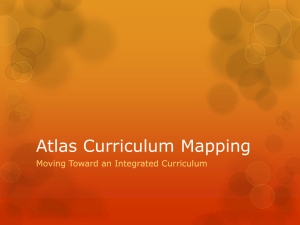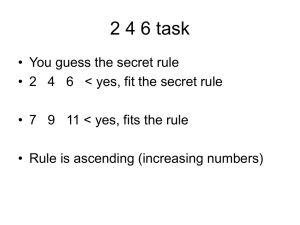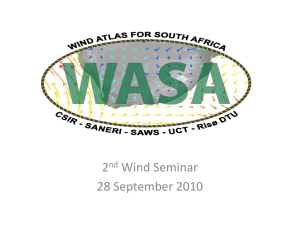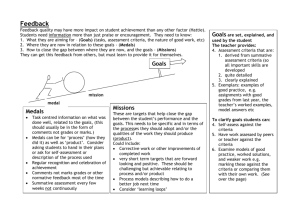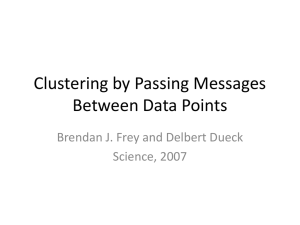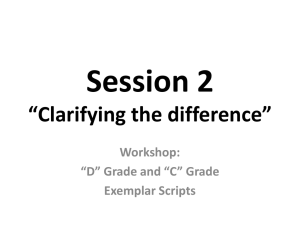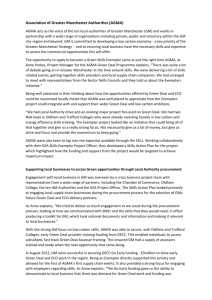Understanding by Design and Atlas Curriculum Mapping
advertisement
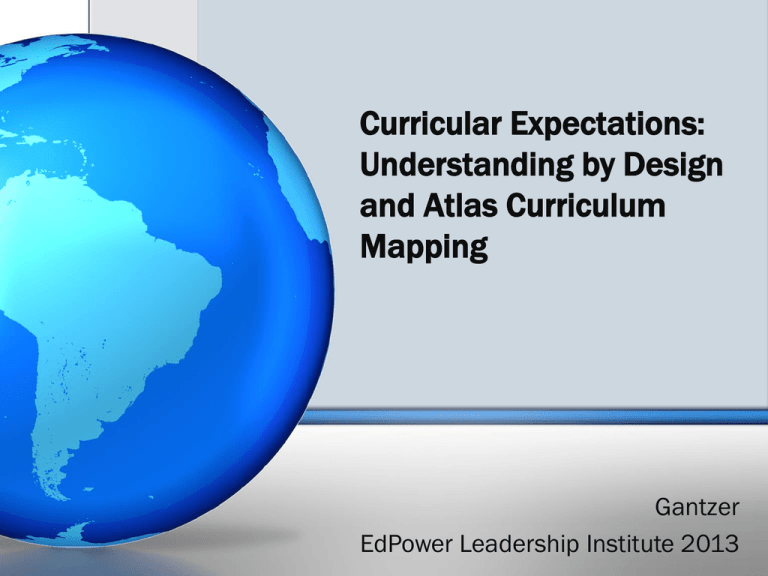
Curricular Expectations: Understanding by Design and Atlas Curriculum Mapping Gantzer EdPower Leadership Institute 2013 Session Overview By the end of this session, you will: • Identify the methods of accountability for curriculum mapping • Identify components of a quality backwards designed unit map using the Curriculum Team’s Atlas Audit Rubric and exemplar maps • Evaluate a sample unit map in Atlas using the network Atlas audit rubric Why? Core Ideas from Leverage Leadership: • Every day teachers make choices about what students learn and how they learn it. Good instructional leadership is about making these choices explicit, and making teachers choose intentionally. • Autonomy in lesson planning for all teachers only guarantees one thing: that some teachers will have the “freedom” to fail to plan effectively. Atlas and UbD Oversight • • Atlas Curriculum Audits (refer to rubric) • Once/month (due by the 15th, but can happen at any time) • Performed by Curriculum Team • General feedback given to leaders Atlas Maintenance (refer to cheat sheet) • Leaders should use feedback to guide feedback to teachers. • Instructional leaders should use Atlas when reviewing unit materials (unit plans, assessments, and lesson plans) to address any gaps in teacher understanding, ability, or compliance in between audits. Understanding by Design • A Curriculum-Writing Framework 3 Stages of Curriculum Design: 1. 2. Identify Desired Results • Standards • Essential Questions and Understandings • Key Knowledge and Skills Determine Acceptable Evidence • 3. Rigorous, standard-aligned assessments Plan Learning Experiences and Instruction • Daily rigorous, objective-driven lesson plans Understanding by Design Stage 1: Identify Desired Results Understanding by Design Stage 1: Identify Desired Results • • Standards • Aligned to appropriate grade level and content • Can feasibly be taught in the identified time frame • FMMs and Exemplar Review Math Exemplar Essential Questions (refer to handout) • Key inquiries about important and transferable ideas within the discipline • Open-ended, provocative, require higher-order thinking and support • Intent outweighs form • Overarching, Topical, Metacognitive • FMMs and Exemplar Review *A word of caution English Exemplar Understanding by Design Stage 1: Identify Desired Results • • Understandings (New this year!) Physical Education Exemplar • Core generalizations based on big ideas of the content and/or discipline • General answer to an essential question (not always) • Higher-level concepts students will evaluate using knowledge and skills from unit • FMMs and Exemplars Key Knowledge • Facts, concepts, generalizations and principles important for students to know • Often comprehension and recall • FMMs and Exemplars Science Exemplar Understanding by Design Stage 1: Identify Desired Results • Key Skills • Skills and processes students will practice as they work with the content • Daily objectives (SWBATs); always begin with an action verb • Align with identified standards and can feasibly be taught within the identified time frame • FMMs and Exemplars *Note on alignment of Stage 1 components Math Exemplar Understanding by Design Stage 1 Check for Understanding Understanding by Design Stage 2: Determine Acceptable Evidence Understanding by Design Stage 2: Determine Acceptable Evidence • Assessment (Improved focus this year!) • Presentations, projects, tests, quizzes, etc. that measure student mastery of the content • Rigorous, aligned to standards, and created at the beginning of the unit (used to drive instruction) • FMMs and Exemplars Atlas *Note on Instructional Expertise Math Exemplar Understanding by Design Stage 3: Plan Learning Experiences and Instruction Understanding by Design Stage 3: Plan Learning Experiences and Instruction • • Learning Ladder/Lesson Plans • Daily lessons used to promote learning (uploaded in advance) • Plans contain all components of a quality lesson (objective, assessment, do now, I do, we do, you do) • FMMs and Exemplars Reflection (Arlington only) • • Thoughtful examination of strengths/weaknesses of unit Syllabi (Tindley only) • Complete, aligned, and current Science and English Exemplars English and PE Exemplars Understanding by Design Quiz • • • Break up into teams of 4-5 Groups will be randomly selected to answer a question about UbD components, Atlas Audit points, and/or frequently made mistakes Groups will have 30 seconds to come up with a “final answer” Application: Unit Map Critique • Independently, evaluate the two sample maps using the Atlas Audit Rubric. • • • Give each category a score of 0-2 and determine an overall score. Have comments prepared to justify your score for each category. Think through what feedback you’d give to this teacher • Witherspoon: Spanish 1 (Teacher Map) Para Mantener la salud • Tindley Curriculum: Math Procedures 6 Numbers, Expressions and Equations Connect and Reflect: How does the picture below relate to Understanding by Design and/or Atlas Curriculum Mapping?

